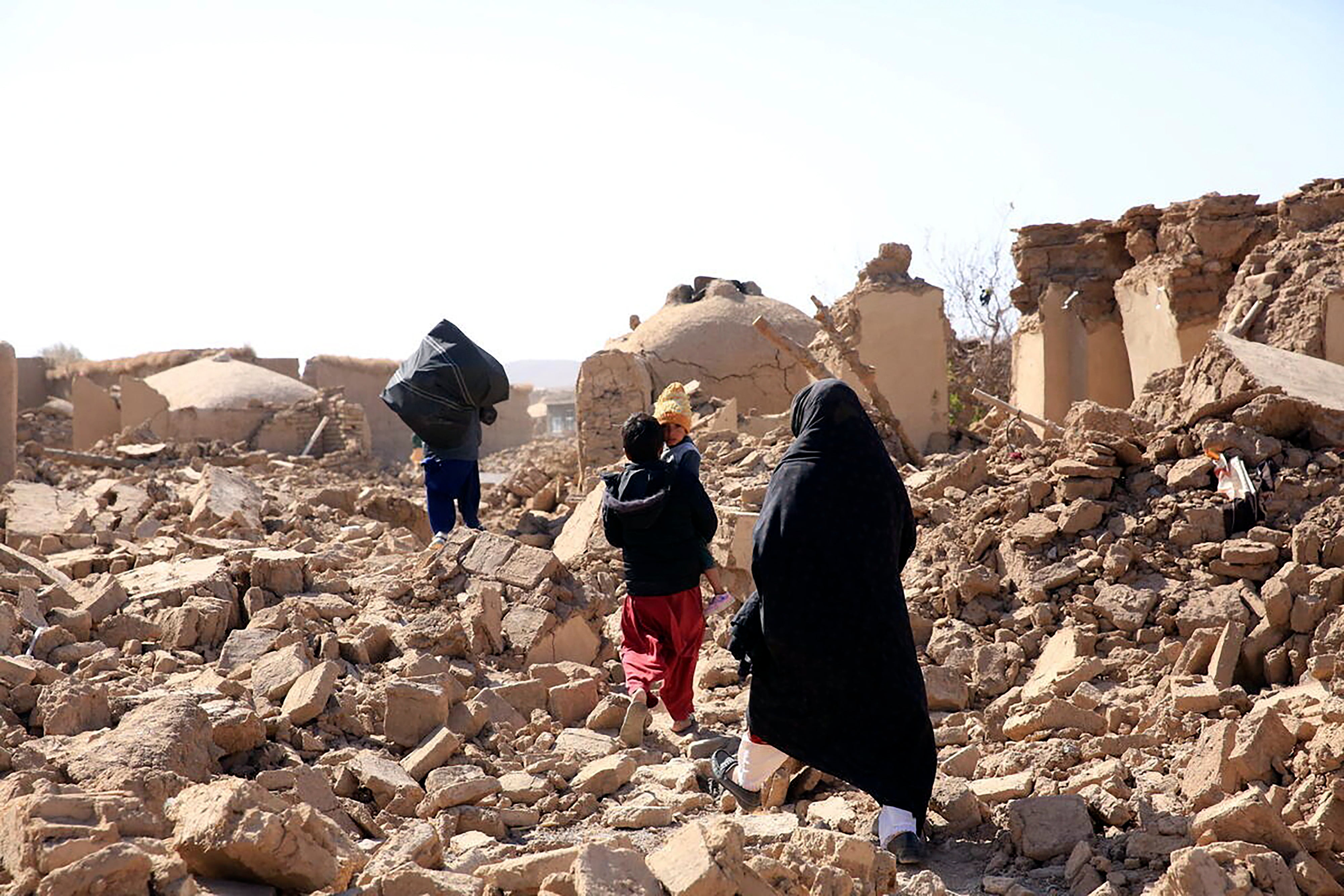Restricted rights put Afghan women and girls in a 'deadly situation' during quakes, UN official says
A U.N. official says Afghan women and girls are in a “not only difficult

Your support helps us to tell the story
From reproductive rights to climate change to Big Tech, The Independent is on the ground when the story is developing. Whether it's investigating the financials of Elon Musk's pro-Trump PAC or producing our latest documentary, 'The A Word', which shines a light on the American women fighting for reproductive rights, we know how important it is to parse out the facts from the messaging.
At such a critical moment in US history, we need reporters on the ground. Your donation allows us to keep sending journalists to speak to both sides of the story.
The Independent is trusted by Americans across the entire political spectrum. And unlike many other quality news outlets, we choose not to lock Americans out of our reporting and analysis with paywalls. We believe quality journalism should be available to everyone, paid for by those who can afford it.
Your support makes all the difference.Women and girls are in a “not only difficult ... but deadly” situation following recent earthquakes in Afghanistan because of the humanitarian and civil rights crises in the country since the Taliban seized power, a U.N. official said Sunday.
An update from U.N. Women highlighted some of the problems women are facing in areas of Herat province, where a series of violent earthquakes and aftershocks this month killed thousands of people, more than 90% of them women and children, and destroyed nearly every home.
Cultural norms make it impossible for women to share a tent with neighbors or other families, the U.N. agency said in its update published Thursday. Many women also have difficulty obtaining humanitarian aid if they don't have male relative who can access it on their behalf and there is an absence of female workers aid distribution points, the U.N. said
Women affected by the earthquake have told the U.N. they cannot access aid without the national identity card, or tazkera, of a male relative. They need clothing, including the Islamic headscarf, so they can dress appropriately to access services and aid, according to the update.
“When natural disasters strike, women and girls are impacted most and often considered least in crisis response and recovery,” Alison Davidian, the U.N. special representative for women in Afghanistan, said in a message to the Associated Press. "The earthquakes, when combined with the ongoing humanitarian and women’s rights crisis, have made the situation not only difficult for women and girls, but deadly.”
One reason children and women accounted for the vast majority of the at least 1,482 people who died in the quakes is they were more likely to have been indoors when the disasters struck, according to aid officials. Taliban officials gave higher casualty figures than humanitarian groups, saying more than 2,000 people died.
Davidian noted that women and girls have been increasingly confined to their homes because of increasing Taliban-imposed restrictions on them in the last two years.
The Taliban have barred girls from school beyond sixth grade and banned women from public spaces and most jobs. Women must also comply with dress codes and have a male chaperone accompany them on long journeys.
The Taliban have also restricted Afghan women from jobs at non-governmental organizations, although there are exemptions for emergencies and health care.
Most emergency assistance in earthquake-hit Herat is being distributed through a local intermediary, normally a male community or religious leader.
Women mentioned the involvement of community leaders as their “main challenge” when accessing help as community leaders are not always aware of the most vulnerable women, the U.N. update said.
Afghans are struggling with the social, political and economic shocks from the withdrawal of international forces in 2021 and decades of war. More than half of the country's population of 40 million needs urgent humanitarian assistance.
Aid agencies have been providing food, education and health care support in the wake of the Taliban takeover and the economic collapse that followed it.